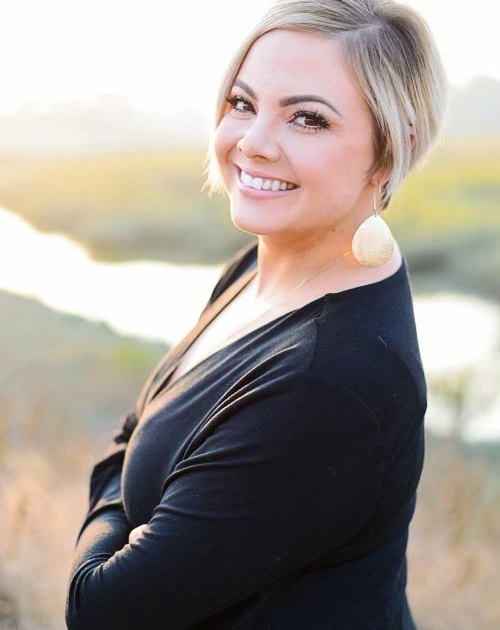The shocking story of Amanda Riley, a seemingly ordinary wife and mother from a wealthy California community, unfolded in the four-part ABC docuseries, Scamanda. The series, based on the popular 2023 podcast of the same name, delves into Riley’s intricate fabrication of a prolonged and harrowing cancer battle, a deception that allowed her to solicit substantial sums of money, gifts, and sympathy from thousands of followers, including members of her megachurch. Riley meticulously documented her fictitious illness on a personal blog, complete with photos and emotionally charged narratives detailing her supposed treatments and struggles. This platform became the conduit for her solicitations, which ranged from cash donations for medical expenses to extravagant gifts, trips, concert tickets, and even celebrity meet-and-greets.
The unraveling of Riley’s elaborate ruse began with an anonymous tip to investigative producer Nancy Moscatiello. Subsequent investigations by Moscatiello and law enforcement revealed glaring inconsistencies and outright fabrications in Riley’s story. Hospital photos, initially presented as evidence of her suffering, portrayed a healthy, vibrant individual, bearing no resemblance to someone undergoing grueling cancer treatments. Her blog posts contained medically implausible claims, such as self-administering clinical trial chemotherapy drugs at home with a doctor’s permission. Further inquiries to nationally renowned cancer centers, where Riley claimed to have received treatment, revealed no record of her ever being a patient. Similarly, charities that had provided her with financial assistance and services admitted to not requiring documentation of her illness. The mounting evidence ultimately led to Riley’s conviction for wire fraud in 2021, culminating in a five-year prison sentence.
The ease with which Riley managed to deceive so many raises questions about the nature of trust and the human tendency to believe those who appear vulnerable. Podcast creator and show producer Charlie Webster, in an exclusive interview with Us Weekly, argues against the notion that those who believed Riley were simply gullible or naive. Webster emphasizes that society is generally conditioned to trust individuals who claim to be battling cancer, making it difficult to question their narratives. Riley’s performance, particularly within her church community, further solidified the perception of her as a genuine sufferer. She shared her supposed ordeal and spiritual faith with the congregation, even going so far as to stage collapses and medical emergencies during services. These dramatic displays, coupled with her messages of hope and resilience, garnered immense sympathy and support from those who witnessed them.
The retrospective analysis of Riley’s deception reveals a pattern of manipulative behavior, but at the time, her actions appeared consistent with someone facing a life-threatening illness. Her claims of miraculous survival, combined with her public displays of suffering, created an environment where questioning her story would have seemed callous and insensitive. Webster points out the social pressure against doubting someone in such a vulnerable position, highlighting the fear of being perceived as judgmental or unsympathetic. The combination of Riley’s convincing performance, the societal taboo against questioning illness narratives, and the emotional vulnerability of her audience created a perfect storm for her deception to thrive.
Webster, who interviewed Riley for the docuseries, offers a nuanced perspective on her motivations, suggesting that her actions might have been driven by an addiction to attention and validation rather than purely financial gain. He draws parallels to the contemporary phenomenon of social media validation seeking, arguing that Riley’s behavior was an amplified version of this desire for external affirmation. The outpouring of support and adoration from her followers, particularly within her church community, provided her with a potent sense of validation and belonging. This perspective, while acknowledging the harm Riley inflicted, attempts to understand the psychological underpinnings of her actions, suggesting a complex interplay of emotional needs and manipulative behaviors.
While acknowledging the possibility of underlying psychological issues, Webster refrains from labeling Riley with specific diagnoses like Munchausen syndrome or narcissism. He explains that without a formal diagnosis, speculating on her mental health would not only be irresponsible but also potentially minimize the experiences of her victims. The docuseries, therefore, focuses on the factual account of Riley’s deception, exploring the societal factors that enabled her scam and the emotional impact it had on those who believed her. Scamanda ultimately serves as a cautionary tale about the dangers of unchecked trust, the power of performative illness, and the complexities of human motivation. It also highlights the importance of critical thinking and the need for verification, even when confronted with seemingly compelling stories of suffering.










